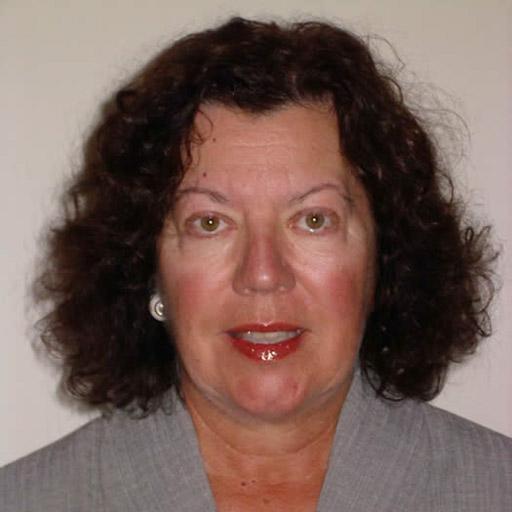
Brooke Jeffrey, PhD
- Professor, Political Science
Are you the profile owner?
Sign in to editResearch areas: Public Administration and Canadian Politics.
Contact information
Email:
Website:
Biography
Brooke Jeffrey’s research is broadly focused on federalism and Canadian public administration. Her current work on Canadian federalism examines the potential impact of the Trudeau government’s approach to federalism and reconciliation on intergovernmental relations and national unity. She also investigates federalism from a comparative perspective, examining the role of federalism in political integration, and its impact on the internal cohesion of political parties, most recently with respect to the United Kingdom and Brexit. Dr. Jeffrey’s current research interest concerning Canadian public administration focuses on public service reform with particular emphasis on accountability,transparency, and the role of oversight mechanisms such as officers of parliament.
A former senior public servant, Dr. Jeffrey worked on numerous policy initiatives involving human rights, official languages, multiculturalism and aboriginal self-government legislation. She has been a consultant to several parliamentary committees and associations, and served on the Prime Minister’s Blue Ribbon Panel for the Outstanding Senior Public Servant Awards. She has also been a policy adviser to Liberal leaders, and is a former Director of the Liberal Caucus Research Bureau. Dr Jeffrey is currently serving a two-year term as president of CAPPA
Research interests
Public Administration and Canadian Politics.
Teaching activities
POLI 351 Canadian Federalism
POLI 365 Canadian Public Administration
POLI 398W Political Participation in Canada
POLI 406 Advanced Seminar in Comparative Federalism
POLI 618 Canadian Public Administration
POLI 622 Comparative Public Administration
POLI 624 Public Administration and Intergovernmental Affairs
Selected publications
Road to Redemption: The Liberal Party of Canada 2006-2019.(Toronto: University of Toronto Press, 2021), 322.
Dismantling Canada: Stephen Harper’s New Conservative Agenda.(Montreal: MQUP Press, 2015), 417.
Divided Loyalties: The Liberal Party of Canada 1984-2008. (Toronto:University of Toronto Press, 2010), 698.
Hard Right Turn: The New Face of Neoconservatism in Canada.(Toronto: Harper Collins, 1999, 2nd ed. 2000), 490.
Strange Bedfellows, Trying Times: October l992 and the Defeat of thePowerbrokers. (Toronto: Key Porter, 1993), 248.
Breaking Faith: The Mulroney Legacy. (Toronto: Key Porter,l992), 247
Chapters in Edited Volumes:
“Second Chance: The Chastened Liberals” in J. Pammett and C. Dornan. TheCanadian General Election of 2019. (Montreal: MQUP, 2020)
“Liberalism and the Protection of LGBT Rights in Canada” in QueeringRepresentation: LGBTQ People and Electoral Politics in Canada. M. Tremblay(ed.) (Vancouver: UBC Press, 2020)
“Canadian Liberalism as a Distinctive Tradition” in D. McGrane and N.Hibbert. Applied Political Theory and Canadian Politics. (Toronto:University of Toronto Press, 2019). 42-68.
“The Liberal Party of Canada: Rebuilding Resurgence and Return to Power” inA. Gagnon and B Tanguay. Canadian Parties in Transition. (4thEd). (Toronto: University of Toronto Press. 2017). 127-145.
“Back to the Future: The Resurgent Liberals” in J. Pammett and C. Dornan.(eds) The Canadian General Election of 2015. (Toronto: Dundurn Press,May 2016) 57-84.
“The Evolution of Human Rights Protection in Canada” in G. DiGiacamo. (ed) HumanRights: Current Issues and Controversies. (Toronto: U of T Press, Feb.2016) 3-29.
“The Liberal Campaign for the Ages” in A. Martland and T.Giasson.(eds) CanadianElection Analysis 2015: Communication, Strategy and Democracy. (Vancouver:UBC Press, 2015)
“Open Federalism and the Harper Government” in C. Briggs (ed) ModernCanada: 1945 to the Present. (Toronto: Oxford University Press, 2013)166-181.
“The Disappearing Liberals: Caught in the Crossfire”, in J. Pammett and C.Dornan, (eds.) The Canadian General Election of 2011. (Toronto:Dundurn Press, 2011) 45-75.
“Challenges for Canadian Federalism”in M. Behiels and F. Rocher (eds.), TheCanadian State in Transition. (Ottawa: Invenire Books, 2011)
“Prime Minister Harper’s Open Federalism: Promoting a Neoliberal Agenda?” inG. DiGiacomo and M. Flumian eds., The Case for Centralized Federalism,(Ottawa: University of Ottawa Press, 2010) 108-37.
“Missed Opportunity: The Invisible Liberals” in J. Pammett and C.Dornan,eds., The Canadian General Election of 2008, (Toronto: Dundurn Press,2009), 63-97.
“From Collaborative Federalism to the New Unilateralism: Implications forthe Welfare State” in HMichelman and C. DeClercy, eds., Continuity and Changein Canadian Politics (Toronto:University of Toronto Press, 2005) 117-147.
“Social Cohesion and Nation-Building: The Role of Liberal Values inConnecting Canadians”, in Searching for the New Liberalism, T. Axworthy and H.Asper eds., (Toronto: Mosaic Press, 2003), 49-62.
“Canadian Federalism as an Instrument of Political Integration: Lessons forEurope?” chapter in G. Casale, (ed.) Europe: Towards What Kind of Integration?(Milan: Franco Angelli, 2001). 366-405.


